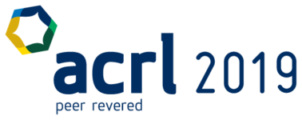Session Description:
This paper focuses on IMLS-funded research we have done around the practices and needs of psychology instructors considering adopting or creating OER. Over the past year, we have gathered information and developed a plan for creating a subject-specific, scalable open textbook toolkit that will meet the needs of instructors looking to adopt, adapt, or create OER. In this paper, we will provide actionable recommendations for support of OER in psychology courses, as well as guidance for applying these results in other fields. It will also provide a framework for librarians to develop their own research agenda in this area.
